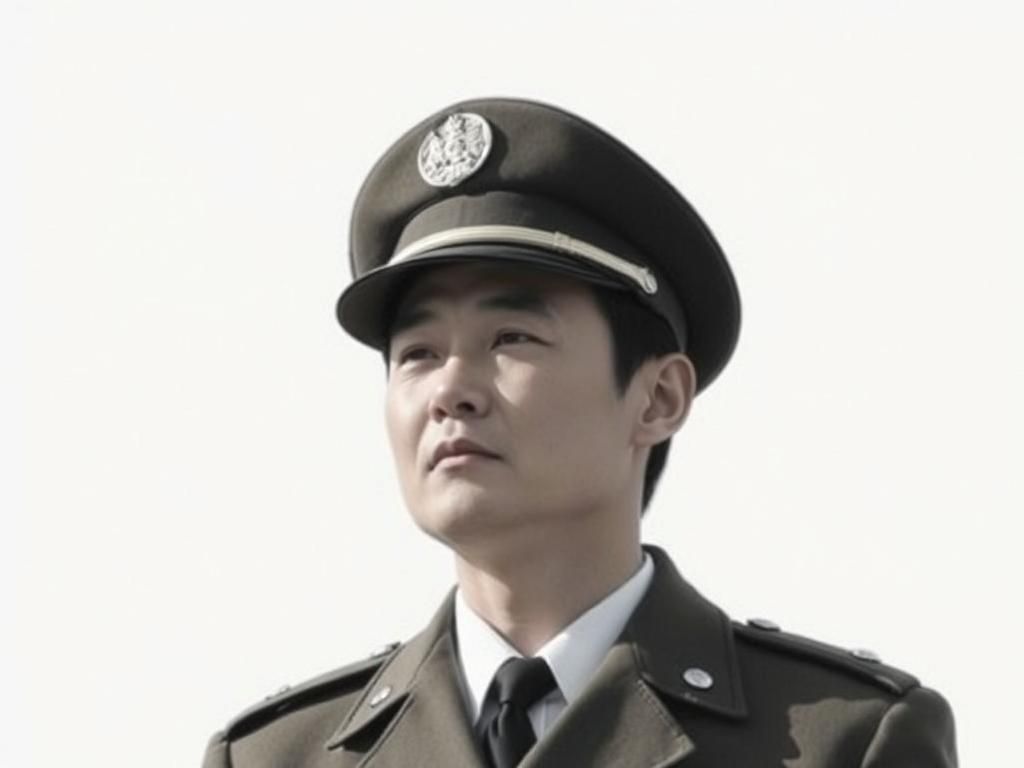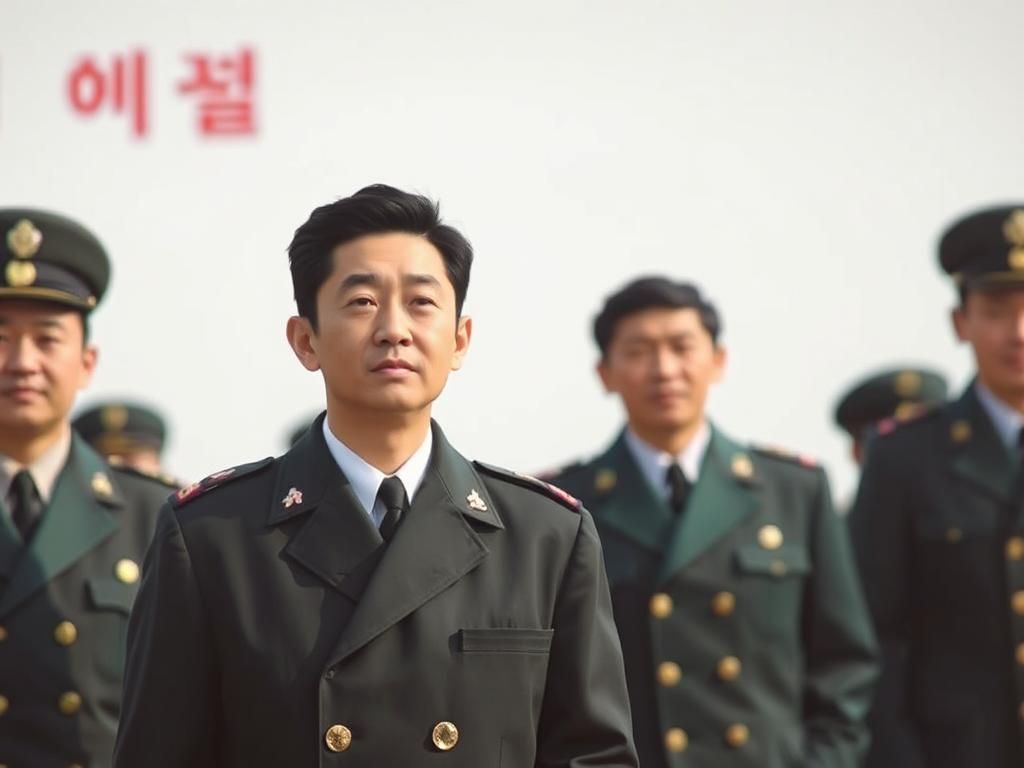Jung Woo Sung is one of South Korea’s most acclaimed actors, recognized not only for his stunning performances but also for his significant contributions to the film industry. His career, spanning over two decades, has seen him starring in numerous influential films, captivating both local and international audiences. In a country where military service is not only a legal requirement but also a rite of passage, the question of *why Jung Woo Sung was exempted from military service* draws much attention. Understanding the circumstances surrounding military enlistment in South Korea, particularly for high-profile celebrities, is essential in grasping the nuances of this topic.
Overview of Military Service in South Korea
Importance of Military Service
Military service holds a central place in South Korean culture. All able-bodied men are legally required to serve in the military for about 18 to 21 months, typically starting at the age of 18. This obligation stems from the ongoing tensions with North Korea and is viewed as a crucial part of national security. Military service is not just a duty; it is also a significant marker of manhood and social responsibility in South Korean society. Alongside fulfilling duty, many young men see their military experience as a chance to grow personally and professionally.
Exemptions and deferments have thus become a complex topic. While some young men may receive deferments for studies or health reasons, others may qualify for complete exemptions, particularly if they achieve exceptional recognition in fields like sports or the arts.
Types of Exemptions Available
In the realm of South Korean military service, *exemptions* can arise from various circumstances.
1. **Medical Exemptions**: If a candidate has documented health issues that hinder their ability to serve, they may qualify for an exemption. This involves evaluations from medical professionals and military officials.
2. **Educational Deferments**: Many young men opt for educational deferments to complete their higher education. This is a common practice, especially among university students.
3. **Other Special Cases**: Some exceptional individuals, like popular athletes and acclaimed artists, can receive exemptions due to their international achievements that bring pride to the nation. This includes individuals recognized for their contributions to the arts, like Jung Woo Sung.
Jung Woo Sung’s Background
Early Life and Career
Born on March 30, 1973, Jung Woo Sung grew up in the bustling city of Seoul. He pursued his education in the field of film and drama, which paved the way for his entry into the entertainment industry at a young age. His breakthrough came with the film *The Warrior*, but it was his role in *The Good, the Bad, the Weird* that truly catapulted him to fame.
With a versatile acting style and a commanding screen presence, Jung Woo Sung has garnered numerous awards during his illustrious career. He is admired not only for his performances in films but also for his involvement in various charitable activities, establishing him as a multifaceted personality in South Korean society.
Notable Achievements Leading to Exemption
Jung Woo Sung’s career is marked by numerous accolades, which have distinctly contributed to his exemption from military service. His films have won awards both domestically and internationally, elevating South Korea’s presence in global cinema. In addition, his contributions have been acknowledged in various festivals, including the Cannes Film Festival, where he served as a jury member.
Jung’s status as a cultural icon has prompted discussions about the military service system in South Korea and how it applies to celebrities. His case exemplifies the delicate balance between cultural norms and individual merit, raising questions about fairness and perceptions of celebrity privilege.
Reasons for Jung Woo Sung’s Exemption

Medical Reasons
While Jung Woo Sung’s public persona is that of a robust and talented individual, there have been claims regarding health issues that contributed to his exemption. This often entails rigorous medical assessments to validate the claim. In South Korea, medical exemptions require thorough documentation that can influence the final decision by military officials.
It’s crucial to emphasize that medical grounds for exemption are rigorously assessed. If a condition is found impacting a person’s ability to serve, a medical exemption may be granted, which necessitates medical evaluations and legal scrutiny.
Professional Contributions
Beyond medical justifications, Jung Woo Sung’s professional contributions play a significant role in his exemption. His achievements in acting, international acclaim, and the promotional value he provides to South Korean culture serve as unique leverage. Popular figures in arts and sports often navigate a different path concerning military service, as their influence can be deemed beneficial for national prestige.
Jung’s celebrity status has allowed him to spark conversations about military service among the populace, reflecting changing attitudes toward *why Jung Woo Sung was exempted from military service* and how these decisions resonate with societal values.
Public Reaction and Controversies
Initial Public Response
When news of Jung Woo Sung’s exemption surfaced, reactions were mixed among fans and media. While many supported him due to his contributions to the arts, critics pointed out the disparities in how exemptions are handled, especially compared to ordinary citizens required to serve military duty without exception. This has prompted broader discussions about equity in South Korea’s military service requirements and the privileges afforded to celebrities.
In comparing Jung Woo Sung with other notable figures who received exemptions, one can see varying public sentiments based on the individual’s career impact and personal reputation. Some, like soccer star Ki Sung-yueng, were celebrated for their contributions, while others faced backlash.
Criticism and Defense
Criticism of Jung Woo Sung’s exemption primarily revolved around two key arguments: the privileges extended to celebrities over regular citizens and the rationale behind the military exemption. Critics argue that the system allows inequality, fostering resentment among young men who fulfill their service obligations while others are seemingly exempt due to their fame.
In response to these criticisms, Jung has maintained that his work in the industry reflects a commitment to the nation and its culture. He emphasizes the importance of understanding the complexities behind the exemption process and recognizes the scrutiny that comes with fame. This acknowledgment often helps to mitigate some of the backlash he faces.
Broader Implications
Military Service Exemptions in Pop Culture
The exemption of celebrities from military service is not a new issue in South Korea. It has been a contentious topic within pop culture, giving rise to an ongoing dialogue about the definitions of merit, responsibility, and public service. As a cultural figure, Jung Woo Sung’s situation sheds light on how celebrity status can intertwine with legal obligations and societal expectations.
The cases of prominent figures often spark debates that reflect broader societal values and the perceived inequalities within the system. Jung’s exemption serves as a case study for understanding these dynamics in contemporary South Korean culture.

Impact on Future Policy Changes
With changing attitudes concerning military service and celebrity endorsements, Jung Woo Sung’s exemption could influence future policy decisions regarding military enlistment and exemptions. The public’s reaction to high-profile exemptions may propel the government towards reevaluating its stance on these issues, particularly how merit and fame are weighted in determining eligibility.
The ongoing conversations about military service, especially in the context of celebrities, can lead to more structured frameworks within which exemptions are granted, balancing public interest and individual contributions to national pride.
Conclusion
Jung Woo Sung’s exemption from military service presents an intricate tapestry of cultural significance and personal achievement. Examining *why Jung Woo Sung was exempted from military service* not only involves understanding his medical circumstance and professional contributions but also highlights broader societal conversations surrounding military service in South Korea. As discussions continue, Jung’s legacy simultaneously transforms narratives around celebrity status and societal expectations, ensuring his position remains relevant in Korean society.
References
– [Korean Military Service Practices](https://www.korea.kr)
– [Cultural Impact of Exemptions](https://www.koreatimes.co.kr)
| Category | Details |
|---|---|
| Born | March 30, 1973 |
| Exemption Basis | Medical and Professional Acclaim |
| Years Active | Since 1994 |
| Notable Films | The Good, the Bad, the Weird; A Moment to Remember |
| Public Reaction | Mixed, with notable criticism |
Frequently Asked Questions
1. What are the general requirements for military service in South Korea?
All able-bodied South Korean men must serve approximately 18 to 21 months in the military, typically starting around the age of 18.
2. Can celebrities get exempted from military service?
Yes, celebrities can receive exemptions due to health issues or significant cultural contributions recognized internationally.
3. What types of medical conditions qualify for exemption?
Conditions affecting physical or mental health, documented by medical professionals, can qualify for exemptions.
4. How does public opinion affect military exemptions?
Public opinion can greatly influence the perception of exemptions, often reflecting broader societal values and inequities.
5. Have other celebrities faced similar scrutiny over exemptions?
Yes, several celebrities, like Yoo Seung-ho and Ki Sung-yueng, have faced scrutiny, showing varied public reactions.
6. What impact could Jung Woo Sung’s case have on future policies?
His case may pave the way for more structured policies regarding military service exemptions, balancing fame with societal duties.
7. How do exemptions affect young men’s views on military service?
Exemptions can foster feelings of resentment among young men who serve, prompting discussions about fairness and equity.
8. What are the repercussions for celebrities obtaining exemptions?
Celebrities often face public backlash that can influence their reputations and careers following military exemptions.
9. Are there other factors influencing exemptions beyond medical and professional reasons?
Yes, social status, public sentiment, and political considerations can also impact exemption decisions.
10. Has military service exemption become more contentious in recent years?
Yes, as celebrity culture evolves, discussions around the fairness of exemptions have intensified, highlighting social disparities.